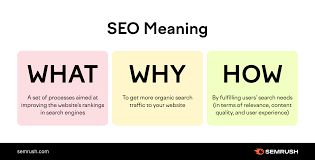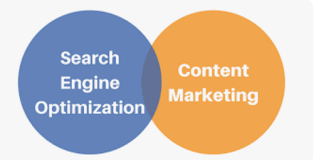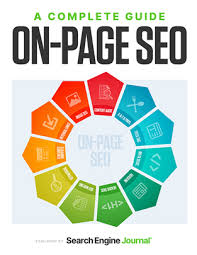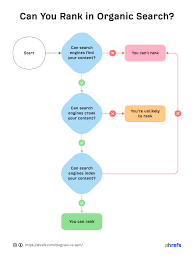Understanding What SEO Is and How It Works

What is SEO and How It Works
SEO, or Search Engine Optimization, is a crucial aspect of digital marketing that focuses on improving a website’s visibility in search engine results. In simple terms, SEO helps your website rank higher in search engine results pages (SERPs) for relevant keywords and phrases.
Search engines like Google use complex algorithms to determine the ranking of web pages based on various factors such as relevance, authority, and user experience. SEO involves optimizing your website to meet these criteria and improve its chances of appearing at the top of search results.
How SEO Works
SEO works by implementing a range of strategies and techniques to improve a website’s visibility and ranking in search results. Some key components of SEO include:
- Keyword Research: Identifying relevant keywords that users are searching for.
- On-Page Optimization: Optimizing content, meta tags, headings, and images on individual web pages.
- Off-Page Optimization: Building backlinks from other reputable websites to improve authority.
- Technical SEO: Ensuring proper website structure, mobile-friendliness, and fast loading speeds.
- User Experience (UX): Creating a seamless browsing experience for visitors.
By implementing these strategies effectively, websites can attract more organic traffic from search engines and increase their online visibility. SEO is an ongoing process that requires continuous monitoring, analysis, and adaptation to stay ahead of the competition.
In conclusion, SEO plays a vital role in helping websites attract organic traffic and reach their target audience online. Understanding how SEO works and implementing best practices can significantly impact a website’s success in the digital landscape.
8 Essential Tips for Understanding SEO and How It Works
- SEO stands for Search Engine Optimization.
- It is the process of improving a website’s visibility on search engines like Google.
- SEO involves optimizing website content, meta tags, and technical aspects for better search engine rankings.
- Keywords play a crucial role in SEO as they help search engines understand the relevance of a webpage to user queries.
- Quality backlinks from reputable websites can significantly boost a site’s SEO performance.
- ‘White hat’ SEO techniques focus on following search engine guidelines to improve rankings ethically.
- ‘Black hat’ SEO techniques involve manipulative practices that violate search engine guidelines and can result in penalties.
- Regularly monitoring and adjusting SEO strategies is essential to maintain and improve search engine rankings over time.
SEO stands for Search Engine Optimization.
SEO, an abbreviation for Search Engine Optimization, is a fundamental strategy in digital marketing aimed at enhancing a website’s visibility and ranking in search engine results. By optimising various elements of a website to align with search engine algorithms, SEO helps improve the chances of the site appearing higher in search results for relevant keywords and phrases. This process involves keyword research, on-page and off-page optimization, technical SEO enhancements, and prioritising user experience to attract more organic traffic and increase online presence.
It is the process of improving a website’s visibility on search engines like Google.
SEO, which stands for Search Engine Optimization, involves enhancing a website’s visibility on popular search engines such as Google. This process focuses on implementing strategies and techniques to improve a website’s ranking in search results pages, ultimately increasing its chances of being seen by a larger audience. By optimising various aspects of a website, such as content, keywords, and backlinks, SEO aims to enhance the site’s online presence and attract more organic traffic from users actively searching for related information or services.
SEO involves optimizing website content, meta tags, and technical aspects for better search engine rankings.
SEO encompasses a comprehensive approach to enhancing a website’s visibility and ranking on search engines by refining website content, meta tags, and technical elements. By strategically optimising these aspects, websites can improve their chances of appearing higher in search engine results pages (SERPs) for relevant keywords and phrases. This holistic SEO strategy focuses on creating a user-friendly experience while also meeting the criteria set by search engine algorithms, ultimately driving more organic traffic to the website.
Keywords play a crucial role in SEO as they help search engines understand the relevance of a webpage to user queries.
Keywords are a fundamental aspect of SEO, playing a pivotal role in helping search engines determine the relevance of a webpage to user queries. By strategically incorporating relevant keywords into website content, meta tags, and headings, businesses can enhance their visibility in search engine results pages and attract organic traffic from users actively searching for related information. Effective keyword usage is essential for improving a website’s ranking and ensuring that it reaches its target audience effectively in the competitive online landscape.
Quality backlinks from reputable websites can significantly boost a site’s SEO performance.
Quality backlinks from reputable websites play a crucial role in enhancing a site’s SEO performance. When a website receives backlinks from trustworthy sources, search engines view it as a credible and authoritative source of information. These quality backlinks not only drive traffic to the site but also signal to search engines that the content is valuable and relevant. As a result, the site is more likely to rank higher in search engine results pages, ultimately improving its visibility and attracting more organic traffic.
‘White hat’ SEO techniques focus on following search engine guidelines to improve rankings ethically.
‘White hat’ SEO techniques are centred around adhering to search engine guidelines in order to enhance rankings ethically. By employing strategies that align with the rules and best practices set by search engines, websites can improve their visibility in search results without resorting to deceptive or manipulative tactics. These ethical approaches not only help boost a website’s ranking but also contribute to building a sustainable online presence that values transparency, quality content, and user experience.
‘Black hat’ SEO techniques involve manipulative practices that violate search engine guidelines and can result in penalties.
‘Black hat’ SEO techniques refer to manipulative practices that violate search engine guidelines and can lead to penalties. These unethical tactics often involve exploiting loopholes in algorithms to artificially boost a website’s ranking, ultimately compromising the integrity of search results. Engaging in ‘black hat’ SEO can have severe consequences, including being penalised or even banned from search engine results. It is essential for businesses and website owners to prioritise ethical and sustainable SEO strategies to ensure long-term success and credibility online.
Regularly monitoring and adjusting SEO strategies is essential to maintain and improve search engine rankings over time.
Regularly monitoring and adjusting SEO strategies is crucial for maintaining and enhancing search engine rankings over time. By staying vigilant and adapting to changes in search engine algorithms, websites can ensure that they remain competitive and continue to attract organic traffic. Continuous evaluation of SEO performance allows businesses to identify areas for improvement, refine their tactics, and stay ahead of the curve in the ever-evolving digital landscape. Consistent monitoring and adjustment of SEO strategies are key to long-term success in driving visibility and engagement online.









